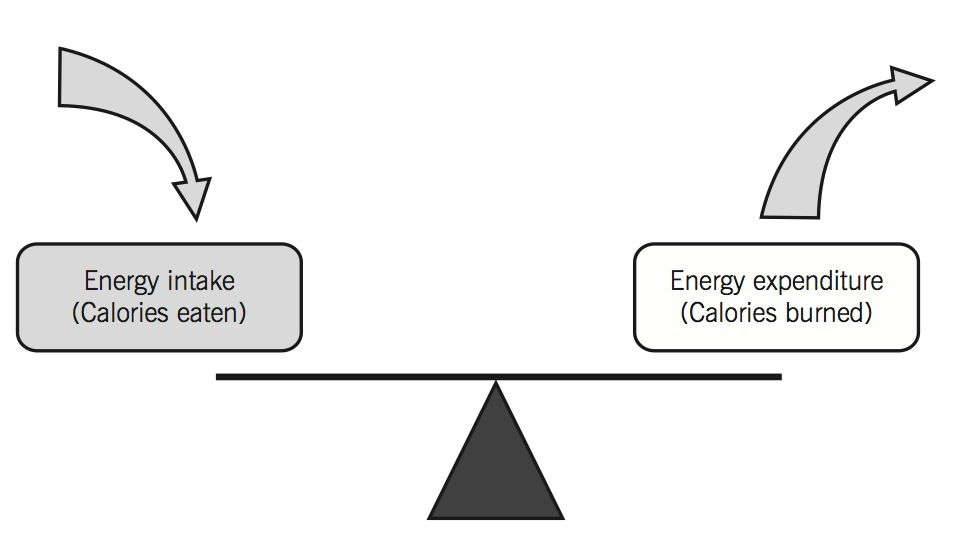ENERGY BALANCE

Most people think that in order to lose weight, you need to burn more calories than the calories you consume. In reality, energy balance is not as simple as calories in vs calories out.
Calories in is usually the “Energy Intake” that includes total energy from micronutrients as well as timing:
1. Carbohydrates (CHO) and protein contain 4 kcal/g
2. Fat contains 9 kcal/g
3. Alcohol provides 7 kcal/g; a toxin that limits fat use during metabolism
4. Water contains 0 kcal/g
Calories out refers to “Energy Expenditure” (EE) and depends on a number of distinct factors:
1. Basal metabolic rate (BMR) and resting metabolic rate (RMR)
BMR is the total calories burned during sleep, while RMR is the resting metabolism when you are awake. For example, when you are sitting, watching TV or working at your desk, RMR is equal to the calories that are burned during that time
2. Exercise/activity expenditure (AE)
The exercise or activity expenditure is based on the intensity and duration of a work-out session and has a direct impact on resting metabolic rate via the effects of excess post-exercise oxygen consumption (EPOC), commonly known as the “after-burn effect”
3. Thermic effect of food (TEF)
This is dependent upon the type of food which is consumed and can equate to up to 10% of total energy expenditure
A high TEF is achieved by consuming lean protein and fibrous CHOs. On the other hand, fats and simple/processed CHOs lead to low TEF. If you want your body temperature to reach a high level while you are digesting food and increase the rate of burning total calories, you need to eat lean protein and fibrous food and vegetables instead of fats and sugars. Also, alcohol can affect your metabolism negatively, because excess alcohol consumption can lead to what is known as an alcoholic fatty liver. This condition can damage your liver, which affects the way your body metabolizes and stores CHOs and fats.
A contemporary method for calculating energy balance:
Energy Balance = Energy Intake – (BMR + RMR + AE + TEF)
While useful to understand your Energy Balance, attaining precise measures of BMR, RMR and TEF is usually costly as it requires special equipment for oxygen measurement utilization.
The main reason I posted this information is not to make your life harder, but to emphasize that besides training, good eating habits and the amount of calories in vs calorie out can positively affect your metabolism. Consuming less alcohol and drinking moderately without exceeding the limit for your liver in order to break it down, in addition to eating more foods that are fibrous and rich in protein, will help your body burn around 10% more calories through digestion.
Also, our BMR and RMRs demonstrate the importance of good sleeping habits and resting, because a shortage of either could have an adverse effect on our metabolism.
In order to maximize your weight loss efforts, always remember to:
- Eat healthier food containing lean proteins, fibers and vegetables
- Avoid fatty snacks, simple sugars and processed carbohydrates
- Give your body the sleep and rest it deserves
- Perform intense workouts, which will lead to a more efficient metabolism
In a series of new articles on the topic of Sports Nutrition, I will talk more about the recommended daily intake of CHOs, proteins, fats and water, and provide my insights into the type of supplements that can be beneficial for weight loss and muscle recovery, as well as increased strength and endurance.



